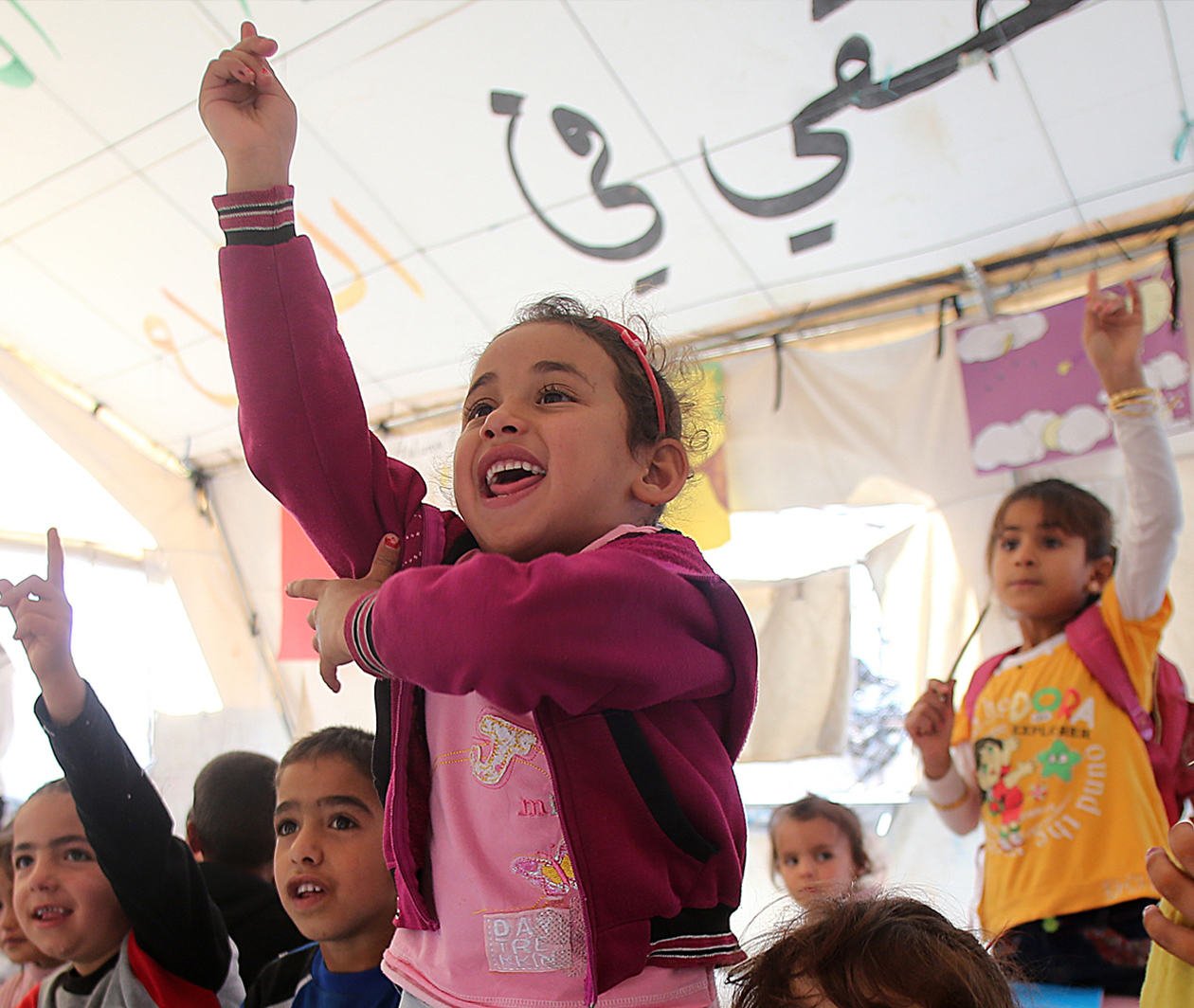Learn how to teach and support young people across the globe affected by violence, conflict, or displacement.

Duration
4 weeksWeekly study
3 hours
Migrants and Refugees in Education: A toolkit for teachers
Other courses you might like
This course isn't running right now. We can email you when it starts again, or check out these other courses you might like.
Browse more in Teaching
Find out how to help students dealing with trauma
On this course, you’ll hear from experienced teachers on the challenges of refugee education.
They’ll share experiences of what they’ve learned and strategies they’ve used when teaching migrant learners both in countries affected by conflict and in host countries.
Whether you’re a language teacher, a teacher of another subject, or a volunteer working in migrant and refugee education, you’ll find ideas and strategies that you can use to better understand your learners.
You’ll also learn how to build inclusive classrooms and develop your learners’ confidence, taking into account the languages they know and their cultures.
What topics will you cover?
- Global trends in migration and displacement as a result of different types of conflicts
- The role and impact of language use as well as language development in migration and displacement
- The range of educational pathways and curricula for students from formal to informal to remedial and the role of the community in supporting learning
- The importance of challenging discrimination and promoting inclusive classrooms which foster collaborative learning
- The learning and behaviour needs of primary and secondary learners who have experienced trauma, displacement and conflict
- The effects of loss, trauma and displacement on the brain and how this knowledge can help teachers to understand learning difficulties and challenging behaviour
- The importance of teacher self-care and the role of well-being in coping with the impact of trauma on teachers and learners
Learning on this course
On every step of the course you can meet other learners, share your ideas and join in with active discussions in the comments.
What will you achieve?
By the end of the course, you‘ll be able to...
- Describe the causes, patterns and impact of migration on teaching and learning
- Develop a profile of your learners and consider strategies to engage and include them
- Apply a set of practical tools and techniques in the classroom environment to better cope with the impact of trauma on teachers and learners
Who is the course for?
The course will be useful for anyone working with migrants and refugees in an educational context.
This can range from those teaching English to refugees to teachers in schools looking to promote inclusive education.
Who will you learn with?
I'm an English teacher and teacher trainer. I'm interested in online learning/teaching and pluralistic approaches to languages and cultures particularly in refugee/immigrant contexts
Who developed the course?
British Council
The British Council builds connections, understanding and trust between people in the UK and other countries through arts and culture, education and the English language.
We work on the ground in more than 100 countries. In 2019-20 we connected with 80 million people directly and with 791 million people overall, including online and through our broadcasts and publications.
Learning on FutureLearn
Your learning, your rules
- Courses are split into weeks, activities, and steps to help you keep track of your learning
- Learn through a mix of bite-sized videos, long- and short-form articles, audio, and practical activities
- Stay motivated by using the Progress page to keep track of your step completion and assessment scores
Join a global classroom
- Experience the power of social learning, and get inspired by an international network of learners
- Share ideas with your peers and course educators on every step of the course
- Join the conversation by reading, @ing, liking, bookmarking, and replying to comments from others
Map your progress
- As you work through the course, use notifications and the Progress page to guide your learning
- Whenever you’re ready, mark each step as complete, you’re in control
- Complete 90% of course steps and all of the assessments to earn your certificate
Want to know more about learning on FutureLearn? Using FutureLearn
Learner reviews
Learner reviews cannot be loaded due to your cookie settings. Please and refresh the page to view this content.
Do you know someone who'd love this course? Tell them about it...
You can use the hashtag #FLMRE to talk about this course on social media.
